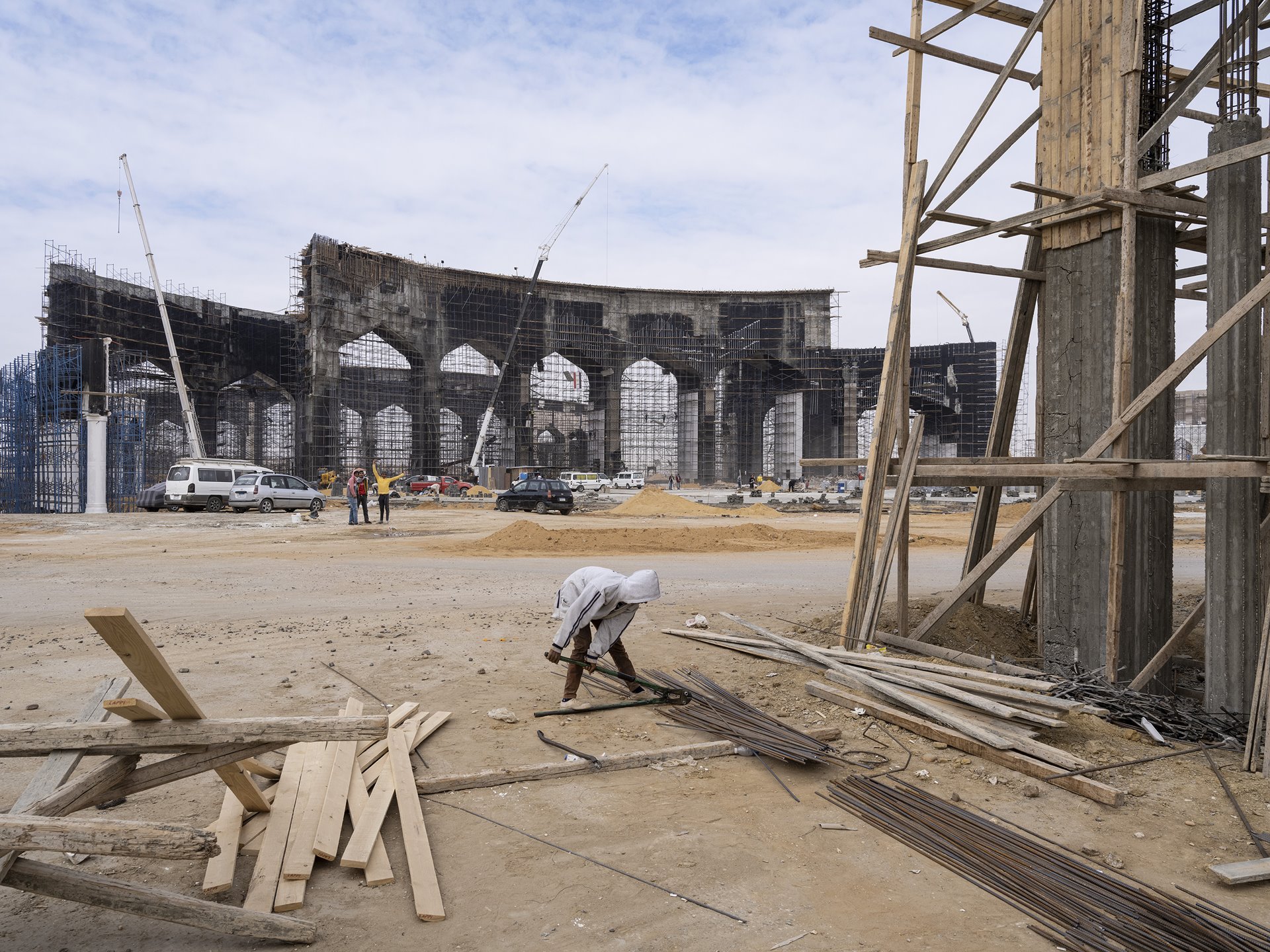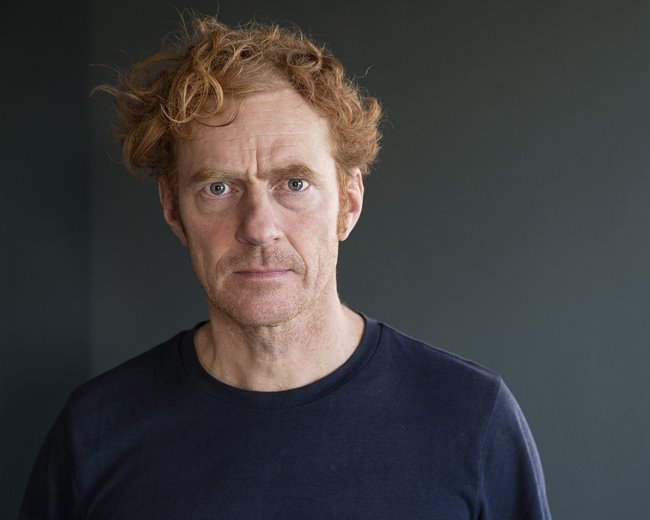Workers construct one of the giant entrance gates to Egypt's New Administrative Capital, under construction near Cairo. A Light Rail Transit from Cairo will pass through this gate.
These images of a city rising in the desert near Cairo, Egypt address issues of large-scale urban development, labor, and inequality.
In 2015, the Egyptian government began constructing a New Administrative Capital (NAC) 60 kilometers east of Cairo. Modeled on Dubai, this new urban environment will accommodate government ministries, a presidential palace, major companies, and some 6.5 million people. Plans are for a sustainable, ‘smart’ city (complete with air sensors and surveillance drones) that will help relieve chronic congestion and pollution in the current capital.
The project is partly funded by China, Emirati investors, and high-interest bonds. Administrative Capital for Urban Development – the company overseeing the development, selling the homes, and administering the buildings – is joint-owned by the Egyptian military (51%) and the Ministry of Housing (49%), giving the military a controlling interest. Civilian authorities will not have the right to inspect the military’s financial gains.
Critics of the project argue that the NAC caters to a privileged minority, and serves President Abdel Fattah el-Sissi’s efforts to consolidate power and establish a legacy. They argue that money spent on building the new capital should rather be directed towards improving living conditions in deprived parts of Cairo, and to social housing. Wealth in Egypt is sharply concentrated. According to the World Inequality Database, just 10 percent of Egypt’s population receive around 50 percent of national income. Half of Egypt’s 100 million people cannot afford a decent home, according to an American University in Cairo study. Some workers helping construct the NAC earn as little as US$200 a month building a city where a two-bedroom apartment will cost around US$50,000.

